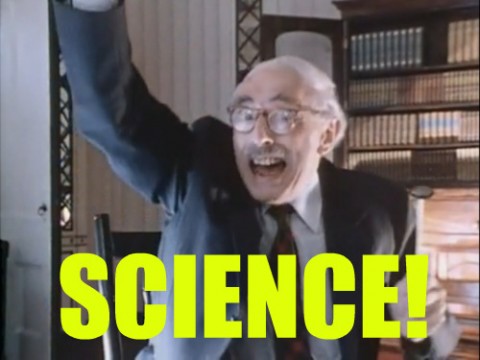.
The most recent Hey Bill:
.
Here's the problem with your answer (which I endorse wholeheartedly) "People who are not scientists have sometimes not dealt honestly with the material, not because they are dishonest but because they just don't QUITE get what science is":
Of course, they don't understand science nearly as well as scientists, and so they tend to overstate, and misstate, sometimes sincerely, sometimes duplicitously. But scientists are the experts in their fields,
Asked by: Steven Goldleaf
Answered: 4/30/2017
No, that's not right. But I give you credit for having perfectly stated the fallacy, the misunderstanding. Scientists are NOT the experts in their field. There is a very fundamental difference between a scientist and an expert, an irreconcilable difference. Anyone who thinks that a scientist is an expert in science doesn't understand what science or what it does. That is the exact core of the problem.
The dichotomy between scientists and experts is very much like the split between scouts and analysts described in Moneyball (a split which, I repeat, I have not seen in my own experience, but don't question that Michael Lewis described accurately from his.) Scouts are experts in baseball. Analysts are scientists, or joke scientists at least, borrowing scientific methods for petty causes. They have fundamentally different views of the world.
An expert represents the current state of knowledge in a field. An expert takes the wisdom of previous generations and advocates it in the current generation, understanding that by "a previous generation" we may mean two months ago, but an expert unavoidably and always argues that what is BELIEVED to be true, IS true. The truth is what the experts in the field believe it to be.
A scientist ATTACKS the current state of knowledge in the field, undermines it, questions, probes constantly for its weaknesses and failures. This is what science is; it is probing for the errors in our current understanding of the issue. An expert is a hitter; a scientist is a pitcher. What one is trying to do, the other is trying to prevent.
A scientist can be an expert in the same sense that a pitcher can be a hitter--as a minor part of his job, at which he is almost always not very good. But expertise and science are not only fundamentally different, they are inherently at war with one another. - Bill James
.
This discussion took place with regard to 'climate science' which is of course a hot topic lately, though not as hot as Stephen Colbert and Donald Trump ... ;- )
Last week the dogma took the form of ostracism against the New York Times for daring to run an Op-Ed (!) column which merely encouraged debate on the subject. Where is Dr. D on the issue? He agrees with Scott Adams that laymen like himself are in no position to even decide the quality of arguments left and right.
He does agree that complex projection models are dubious at forecasting the future, and hopes that physics legend Freeman Dyson is correct in his belief that --- > within 50 or so years, advanced technologies will change the nature of the game.
Dr. D finds the pro-and-con on $100 trillion vs anti-warming spending to be intriguing, but wishes it could take place more dispassionately.
But in any case, "scientists" are up for debate and "experts" are decidedly not. In the Think Tank we know where we stand.
....
Oh, I ran into one other thing. :- ) Perhaps you 'Tankers can disabuse me of my conceit.
I've always been doubtful about the existence of aliens in our galaxy, on the grounds of the Fermi Paradox, the Drake Equation, the Great Silence and the powerfully compelling thought experiment of the von Neumann probes. But recently somebody asked me a question that stopped me short. "If aliens are being hidden by our government, why haven't they given us the cure to cancer?" Or if they are NOT benevolent, if they're going to harvest our oceans like in Oblivion, what are they waiting for?
Maybe you've got a better answer to that one than I do.
Respectfully,
Jeff
